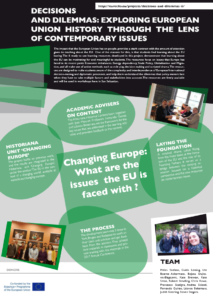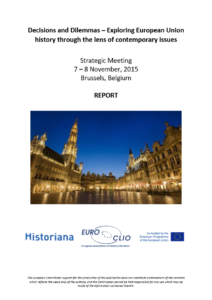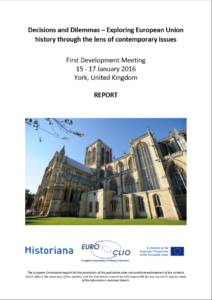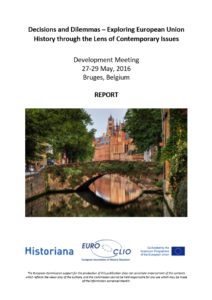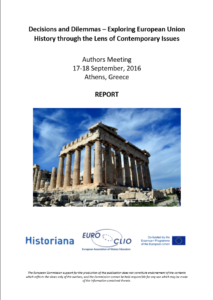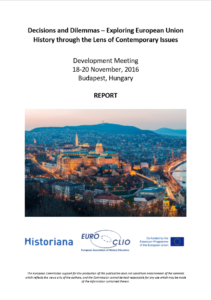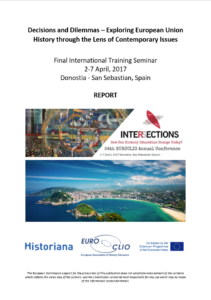About the Project
Each issue will result in a learning activity based on active learning methods (such as scripted drama, various forms of debate and discussion, and project work) that are best suited to the nature of that particular issue. As a result the project will show various ways in with students can learn about the EU on an active and engaging way.
These learning resources will be developed, tested and implemented by an international group of experienced educators (who are currently teaching citizenship and/or history) with the support of Jean Monnet professors as academic advisors. The involvement of leading academics and school teachers and teacher trainers, will make sure that the learning resources are both academically sound and suited for use in diverse classroom settings
The key project activities are three development workshops and one international training seminar.[/su_expand]
Cover image: DonkeyHotey.
Project Aims
[su_list icon=”icon: caret-right”]
- To promote competence-based, learner-centred, multiperspective approaches to history and citizenship education, in a way that shows the relevance and significance of learning about the EU nowadays.
- To make students understand that policy makers had to take into account multiple factors and stakeholders, who ranged from the domestic to the global level.
- To make students understand that policy makers had to take into account multiple factors and stakeholders, who ranged from the domestic to the global level.
- To generate an awareness of the complexity and interdependence of international decision-making/diplomacy on a European/international level.
- To analyze the relevance and resonance of dilemmas and developments since 1945 for Europeans today.
- To make students understand contemporary issues in their historical context, seeing how dilemmas recur over time and how new challenges (can) result from solving other challenges.
- To make students aware of the complexity and limitations of actions of the European Union and the influence of national governments on this.
- To create an awareness of the shared responsibility of EU citizens and national governments rooted in shared values.
Expected Outcomes
[su_list icon=”icon: caret-right”]
- One learning activity for each of the issues – economic imbalances; energy dependency; trade in a global context; the EU potential global power, and opening Europe’s borders for people.
- One learning activity in the form of a scripted drama, on the ‘coming into existence of the European Community’.
- A background document on how to make a decision making activity around a key issue for the European Union.
Public Reports
Contributors
Development team: Ute Ackermann Boeros, Bojana Dujkovic-Blagojevic, Kate Brennan, Guido Lessing, Kate Smee, Helen Snelson (editor).
Advisory team: Léonce Bekemans, Alain Servantie, Fernando Guirao, Chris Rowe, Robert Stradling,
Historical content support: Chris Rowe, Francesco Scatigna.

